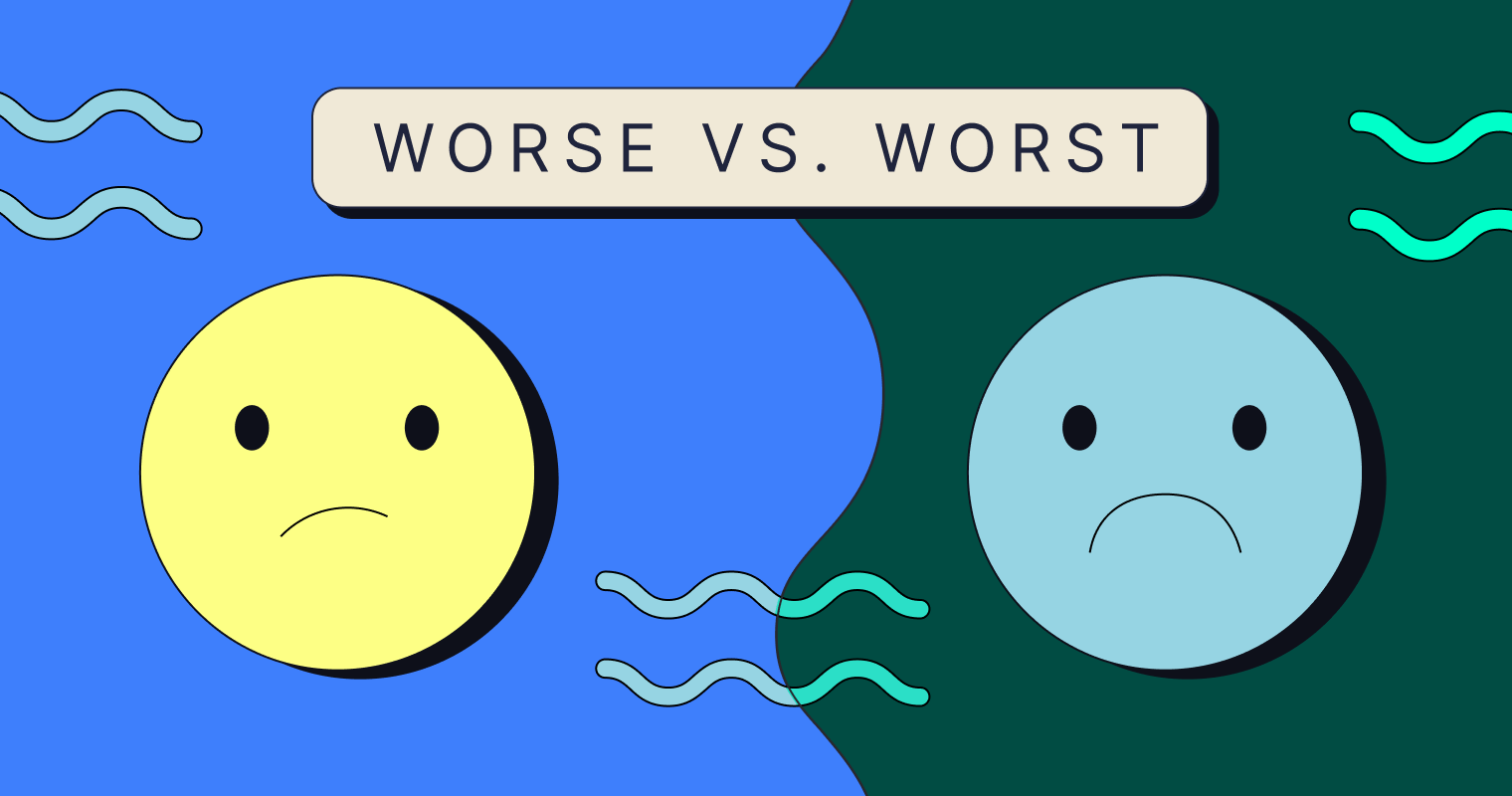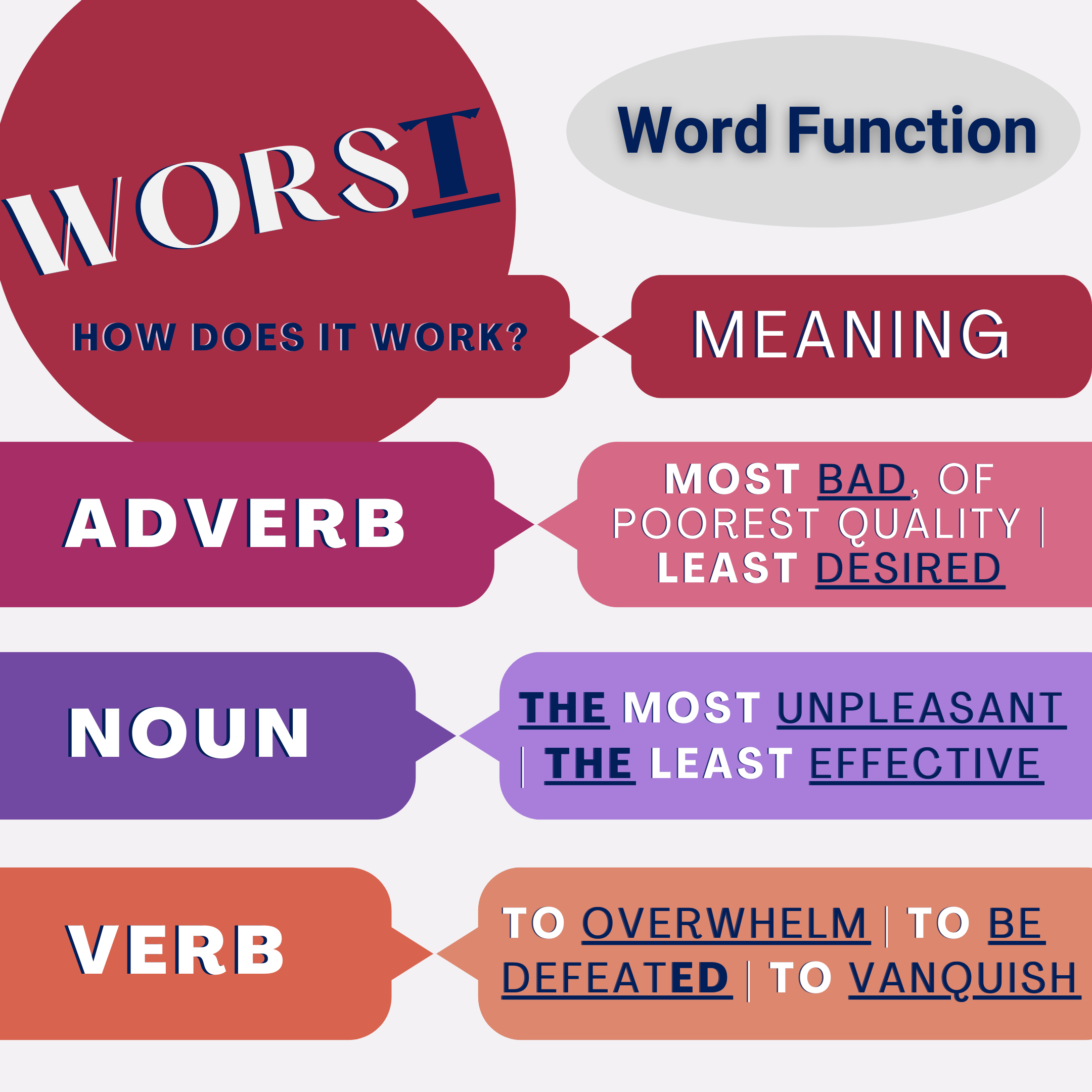Uncovering The Worst Colleges In America: Your Guide To Making Smart Choices
Choosing a college, you know, it's a really big deal, isn't it? It's almost like picking a path for your future, and that, is that, can feel pretty daunting. Nobody wants to invest their precious time and hard-earned money into something that just doesn't deliver. So, it's natural to wonder about which places might not be the best fit.
We've all heard stories, haven't we, about colleges that just don't quite live up to their promises? These institutions, in a way, often leave students feeling, well, a bit short-changed. Understanding what makes some colleges less ideal can really help you steer clear of potential pitfalls, and that's what we're here to talk about today.
My text, actually, mentions that we've looked at what makes certain colleges earn a less-than-stellar reputation. We focused on a few different things to figure out which ones might be considered the worst colleges in America. Keep reading, and you'll find out what colleges tend to fall into this category and why they've received this kind of notice.
- Visual Kei Dress To Impress
- Is Rachel Maddow Still With Susan Mikula
- Remote Iot Platform Ssh Key Raspberry Pi
- Red Hot Chili Anthony Kiedis
- Hannah Einbinder Partner
Table of Contents
- What Makes a College One of the Worst in America?
- How to Spot a Struggling Institution
- The Impact of Choosing a Less-Than-Ideal College
- Frequently Asked Questions About Worst Colleges in America
What Makes a College One of the Worst in America?
When we talk about the worst colleges in America, we're not just throwing around labels, you know? It's actually about looking at a set of very real issues that can seriously affect a student's experience and their future. My text, for instance, points out that we considered several factors to make our determinations, which is pretty important.
We measured things like economic performance and graduation rates, for example, to create our list of the worst universities. The truth is, without ever entering their campus or classroom, it might be challenging to fully evaluate a college's true worth. However, there are some pretty clear indicators that can help us get a good sense of things, and we'll look at those now.
Low Graduation Rates
One of the biggest red flags, honestly, when it comes to identifying colleges that might not be serving their students well, is a consistently low graduation rate. This figure, you know, tells you a lot more than just how many people finish their degrees. It suggests that students might be struggling to complete their programs, which could be for a variety of reasons.
- Thundr Omegle
- Los Cerritos Mall Cerritos
- What Does Oc Mean
- I Just Lost My Dawg Lyrics
- Passion Fruit In Spanish
A low rate might point to inadequate academic support, for instance, or perhaps a curriculum that isn't really engaging students. It could also mean that students are leaving because of financial difficulties, or they might just feel like the education they're getting isn't worth the cost. So, a college with a low graduation rate, is that, often signals deeper issues at play.
My text, actually, mentions graduation rates as a key factor in determining which schools are considered less desirable. If a significant number of students start a program but don't finish, it really makes you wonder about the value being offered. It's a pretty basic measure of student success, and a poor showing here is definitely something to think about.
Poor Job Placement and Economic Performance
Another very important aspect to consider when looking at the worst colleges in America is what happens to students after they graduate, or rather, if they even find work. My text specifically highlights job placement rates and economic performance as crucial criteria. After all, a big reason many people go to college is to improve their career prospects, right?
If a college consistently has a low job placement rate, it means its graduates are struggling to find relevant employment in their fields. This could be due to a lack of career services, for instance, or perhaps the degrees offered aren't really in demand in the current job market. It's a bit like investing in a product that doesn't quite do what it's supposed to.
Furthermore, poor economic performance, which we measured using US government data, suggests that students aren't seeing a good return on their educational investment. This could mean they're earning less than expected, or maybe they're taking on too much debt for the income they'll receive. It's pretty clear that a college should help you move forward financially, not hold you back.
Campus Safety Concerns
Safety, you know, is something that everyone expects when they're on a college campus. It's a fundamental right, really, to feel secure where you're living and learning. My text, in fact, brings up campus safety as a significant factor, even mentioning an investigative look into the most dangerous college campuses. That's a serious thing to consider.
If a college has a history of safety issues, whether it's high crime rates or inadequate security measures, it can really impact a student's well-being and their ability to focus on their studies. Students need to feel safe to thrive academically and personally, and that's just a basic expectation. A campus that doesn't prioritize this, well, it's a big problem.
Parents and students alike, you know, should really look into the crime statistics for any institution they're considering. It's not just about major incidents; it's about the overall environment and whether the college is actively working to keep everyone protected. A place that consistently struggles with safety, honestly, might not be worth the risk.
High Student Debt and Low Value
The cost of college, you know, is a huge concern for so many people these days. It's a rather significant financial commitment, and students often take on a lot of debt to get their degrees. My text mentions student debt as one of the factors we considered, and that's for a very good reason. It's about getting value for your money, isn't it?
Some colleges, unfortunately, leave students with a mountain of debt without providing a corresponding boost in career opportunities or earning potential. This means that after graduation, students are struggling to pay back loans, and their degree might not be opening the doors they expected. It's a bit of a trap, really, to pay a lot for very little return.
When you're looking at colleges, it's important to consider the average student debt load for graduates versus their average starting salaries. If the debt is very high and the salaries are quite low, that's a pretty strong indicator that the college might not be offering good value. It’s about making a smart investment, and some places just don't offer that.
Failing to Meet Student Needs
Ultimately, a college's main purpose is to serve its students, isn't it? My text points out that some institutions have consistently failed to meet students' needs. This can cover a wide range of issues, from poor academic advising to a lack of support services, or even just a general feeling of neglect on campus. It's about the overall student experience, you know.
If students feel unheard, unsupported, or simply like they're just a number, their educational journey is going to suffer. This might manifest as a lack of engaging faculty, outdated facilities, or perhaps a curriculum that doesn't really prepare them for the real world. A college should be a place where students feel they can grow and get help when they need it.
These kinds of institutions, honestly, might have high student-to-faculty ratios, making it hard to get individual attention. Or, they might not offer the resources students need for mental health, career planning, or even basic academic tutoring. When a college isn't meeting these fundamental needs, it's a pretty clear sign that it's not a great place to be.
How to Spot a Struggling Institution
Figuring out which colleges might be among the worst colleges in America can feel like a big task, but there are definitely ways to approach it. My text mentions that it might be challenging to evaluate a college without actually being there, which is true, but that doesn't mean you're completely in the dark. There are steps you can take, you know.
It's about being a bit of an investigator yourself, gathering information, and really looking beyond the glossy brochures. You want to make an informed choice, and that, is that, means doing your homework. Let's talk about some practical ways you can uncover potential issues before you commit.
Researching Key Metrics
One of the most effective ways to identify potential problems, you know, is to dig into the numbers. My text says we ranked schools using US government data and measured economic performance and graduation rates. You can do something similar, actually, using publicly available information. It's all about finding the right sources.
Websites like the U.S. Department of Education's College Scorecard are fantastic resources for this. You can find data on graduation rates, student debt, and even the average earnings of graduates from specific institutions. This kind of information, honestly, gives you a very clear picture of what you might expect.
Also, look for information on student retention rates – that's how many first-year students return for their second year. A low retention rate, you know, can suggest that students aren't happy or supported. These metrics, basically, offer objective insights that can help you compare colleges fairly.
Looking Beyond the Brochures
College brochures and websites, you know, are designed to make everything look absolutely perfect, aren't they? They show happy students and beautiful campuses, which is fine, but you need to look past that. My text reminds us that without ever entering their campus or classroom, it might be challenging to evaluate a college, and that's a good point.
Try to find independent reviews from current students and recent graduates. Websites like Niche or Unigo often have student testimonials that give a more realistic view of campus life, academic rigor, and support services. These personal accounts, honestly, can reveal a lot about a college's true character, both the good and the bad.
Also, consider visiting the campus if you can, and not just on a guided tour. Walk around on your own, talk to students you encounter, and get a feel for the atmosphere. Sometimes, you know, just observing can tell you more than any official presentation ever could. It's about getting a genuine sense of the place.
Trusting Your Gut Feeling
After all the research and all the visits, you know, sometimes it really comes down to how a place makes you feel. Your gut instinct, actually, can be a pretty powerful tool in making big decisions like this. If something just doesn't feel quite right about a college, it's worth paying attention to that feeling.
Maybe the staff seemed disengaged, or perhaps the facilities felt run-down, or you just didn't connect with the overall vibe. These subtle cues, honestly, can be indicators of deeper issues within the institution. It's not always about hard data; sometimes it's about the less tangible aspects of a college.
Don't dismiss those feelings, you know. They're part of your own personal evaluation process. If a college doesn't feel like a good fit for you, even if it looks good on paper, it might be worth exploring other options. Your comfort and happiness, you know, are pretty important for a successful college experience.
The Impact of Choosing a Less-Than-Ideal College
Choosing a college, you know, is a decision that has long-lasting effects, doesn't it? Opting for one of the worst colleges in America, even unintentionally, can lead to a lot of headaches down the road. It's not just about a few years of school; it's about setting a course for your future, and that, is that, can really shape things for a long time.
My text, actually, implies that some institutions consistently fail to meet students' needs, and the consequences of that can be pretty significant. Let's look at what some of those impacts might be, so you can really understand what's at stake.
Financial Burden and Future Prospects
One of the most immediate and impactful consequences, honestly, of attending a less-than-ideal college is the financial burden it can place on you. If you're taking on significant student debt for a degree that doesn't lead to good job placement or strong economic performance, you know, you're essentially starting your adult life at a disadvantage.
This can mean years of struggling to pay off loans, which can delay major life milestones like buying a home, starting a family, or even just building up savings. It's a pretty heavy weight to carry, and it can affect your overall financial well-being for a very long time. The goal, after all, is to improve your financial standing, not hinder it.
Furthermore, if your degree isn't highly valued in the job market, your future career prospects might be limited. You could find yourself underemployed or struggling to find work in your chosen field, which, you know, can be incredibly frustrating after all that effort and expense. It's about making sure your investment truly pays off.
Educational Quality and Personal Growth
Beyond the financial aspects, you know, there's also the very real impact on your education itself and your personal growth. A college that consistently fails to meet student needs, as my text suggests, might not provide a high-quality learning environment. This could mean uninspired teaching, outdated resources, or a lack of opportunities for real intellectual development.
If you're not challenged, or if you don't feel supported in your academic journey, you might not gain the critical thinking skills or specialized knowledge that a good education should provide. This, honestly, can affect your confidence and your ability to succeed in future endeavors, whether that's graduate school or a career.
Also, college is about more than just classes; it's a time for personal growth, for making connections, and for discovering who you are. If the campus environment is unsafe, or if there's a lack of engaging student life, you know, that part of the experience can really suffer. You want a place that fosters growth, not one that just gets you through.
Frequently Asked Questions About Worst Colleges in America
People often have a lot of questions about identifying less-than-stellar colleges, and that's perfectly normal. It's a big decision, so it makes sense to seek out all the information you can get, you know. Here are a few common questions that come up when discussing the worst colleges in America.
How do you determine if a college is bad?
Basically, you know, we look at several key indicators. My text mentions things like consistently low graduation rates, poor job placement success for graduates, and concerns about campus safety. We also consider how much debt students accumulate versus their earning potential, and whether the institution truly meets student needs. It's a pretty comprehensive look at various performance metrics, actually.
What are the signs of a struggling college?
A struggling college, you know, often shows a few clear signs. You might see a decline in enrollment, for example, or a high turnover rate among faculty and staff. Financially, they might have issues with accreditation or be facing budget cuts. Also, poor student reviews and a lack of investment in campus facilities can be pretty telling indicators, honestly. It's about looking at the overall health of the institution.
Is it okay to attend a less-reputable college?
Well, you know, it really depends on your goals and what you're looking for. Sometimes, a less-reputable college might offer a very specific program that suits your needs, or it might be more affordable. However, you should be very, very careful and do thorough research. Make sure the degree is accredited and that the institution has a decent track record in your chosen field, so you know, you're not wasting your time or money. It's about making an informed decision for your own situation.
Making a smart choice about where you go to college, you know, is one of the most important decisions you'll make. It's about looking at the facts, listening to your instincts, and really understanding what a college offers beyond the surface.
- We Were Liars Cast
- Bulgarian Split Squat Form
- What Happened To Rachael Ray
- Carly Jane Leaks
- Kelsey Chow Movies And Tv Shows

301 Moved Permanently

Een smakelijk BBQ worst recept - Inamood

worse vs worst what is the difference?